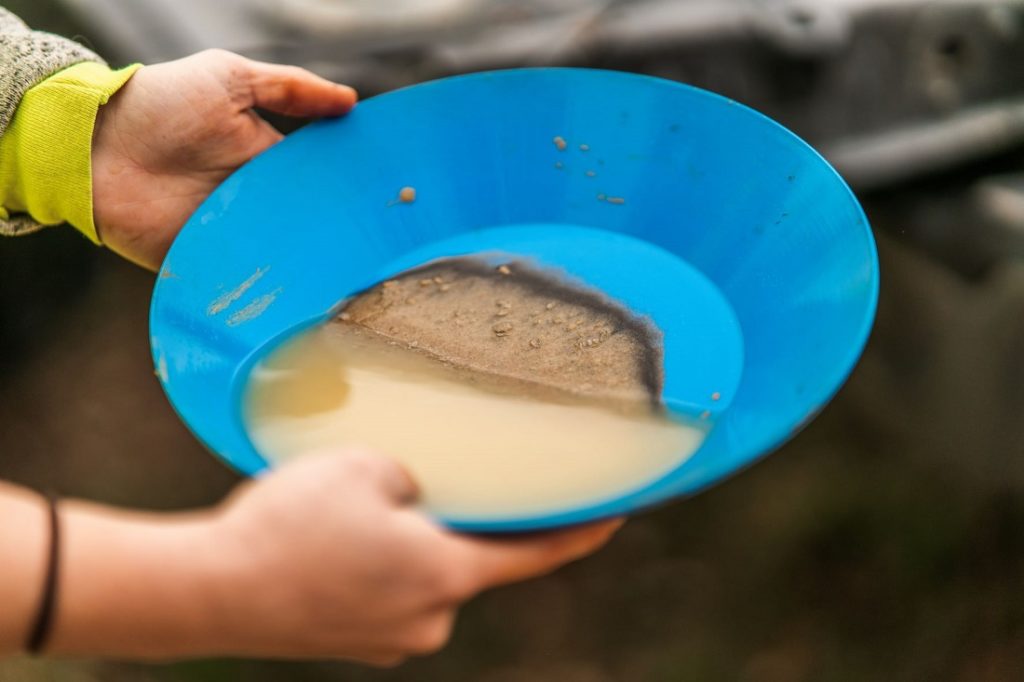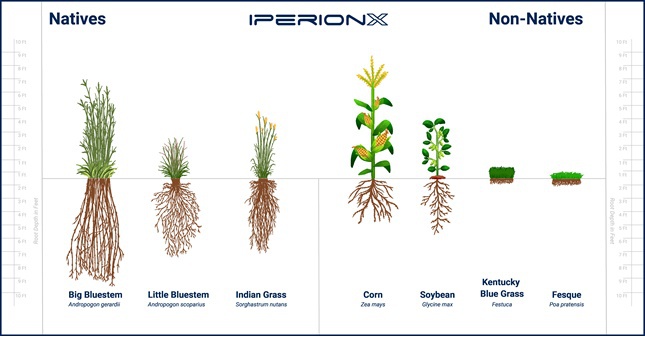
The Focus Will Be the Titan Critical Mineral Project in West Tennessee
KNOXVILLE, Tenn. — IperionX Limited is pleased to partner with the University of Tennessee Institute of Agriculture to research the implementation of sustainable operating and rehabilitation practices at the Titan Critical Mineral Project in West Tennessee. The University of Tennessee is the flagship university in the state of Tennessee, and UTIA is at the forefront of agribusiness research, education and community outreach. The Titan Critical Mineral Project includes programs focused on post mineral extraction practices and carbon sequestration opportunities for generational land-use benefits for local landowners.
The initial scope of work will focus upon the elimination of invasive vegetation and subsequent improved ecological revegetation utilizing native warm season grasses, undertaken on IperionX’s owned properties. IperionX will establish a 10-acre demonstration site at the Titan Project for UTIA’s use for the initial scope of work, with the potential for the site to be used for further sustainability investigations, including the use of biochars, gypsum and other soil amendments to aid in higher crop yields and carbon sequestration.
Professor and UT Extension Environmental Soils Specialist Forbes Walker said, “We are excited to be working with IperionX, a company that is taking a proactive look at the reclamation, rehabilitation and post mine land use of leased and owned lands here in Tennessee. Through the addition of soil amendments such as biochar and the establishment of native warm season grasses, we are aiming to improve soil health so that it is as productive, if not more productive, than it was pre-mining. These grasses could provide an ideal summer forage for wildlife and livestock, while sequestering more carbon than traditional cool season grasses such as tall fescue.”
Anastasios (Taso) Arima, CEO and Managing Director said, “This partnership with the University of Tennessee is a vital part of IperionX’s mission of sustainably re-shoring critical minerals in the U.S. and leaving behind a positive legacy with the communities and land in West Tennessee.
We are very excited to work with Dr. Walker and his team, who are experts in world leading agricultural management and sustainable practices. With this partnership, we aim to develop a high-quality rehabilitation program that has the potential to leave the land in a better state than it was prior to any operations. Research conducted by IperionX and the team at UT will initially focus on improving crop yields and sequestering carbon.

We look forward to commencing our initial research agreement and working with UT and its partner organizations to achieve our goal of sustainable, net-zero carbon operation that will set a strong standard for this industry and leave a lasting positive legacy in the local community moving forward.”
Through its land-grant mission of research, teaching and extension, the University of Tennessee Institute of Agriculture touches lives and provides Real. Life. Solutions. utia.tennessee.edu.
###
About the Titan Critical Mineral Project in West Tennessee
Land Rehabilitation & Carbon Sequestration
Native Warm Season Grasses (NWSGs) are a variety of tall-growing bunch grasses that grow during the warmer months of the year and lay dormant in the autumn and winter. Native grasslands are among the most endangered ecosystems in the Mid-South of the U.S., resulting in habitat destruction for native fauna including quail, rabbits and grassland songbirds, who use native grasslands for cover and nesting.
NWSGs are known for their fast-growing, deep root systems, which retain soil and help prevent erosion, along with their high-quality forage and hay production once mature. These deeper root systems help NSWGs sequester more carbon than their non-native counterparts. Research has shown that NWSGs grow better and have better yields than non-native grasses commonly used at reclaimed mineral extraction operations in North America.
UTIA and IperionX will investigate the usage of Big Bluestem, Little Bluestem and Indian Grass at the Titan Project to help remediate post-mining areas and return the land to its natural state with strong ecosystems, and potentially provide meaningfully higher production capacity than pre-mining.

Biochar and Gypsum Soil Amendments
Biochar is a charcoal-like material made from grasses, wood and other plant materials, that is produced via the thermochemical decomposition of biomass at high temperature in low oxygen environments. Biochar is added to soil mixtures to improve the productivity and resilience of agricultural systems by increasing water retention and increasing plant nutrient availability.
Gypsum, also known as calcium sulfate, is one of the earliest forms of fertilizer with 250 years of agricultural use. Gypsum’s primary applications include high-sodium soil remediation, breaking up compact soils like clays and providing calcium and sulfate sulfur nutrients to plants. Furthermore, it neutralizes aluminum toxicity in soils and improves drainage, reducing phosphorous runoff, crusting and ponding. Recent research has focused on using gypsum soil additives as a potential means of carbon sequestering in soils by enhancing root growth, which UTIA and IperionX will investigate at the Titan Project.
Carbon Sequestering
Carbon sequestration is the removal and storage of carbon from the atmosphere, including by plants in the form of undecomposed organic material, primarily as dead plant root material. As such, plants with fast-growing, deep root systems, including native warm season grasses, may provide a significant opportunity for carbon sequestration under the right conditions, as does the use of soil additives which promote organic growth, including gypsum.
###
About IperionX
IperionX’s mission is to be the leading developer of low carbon, sustainable, critical material supply chains focused on advanced industries including space, aerospace, electric vehicles and 3D printing. IperionX’s breakthrough titanium technologies have demonstrated the potential to produce titanium products which are sustainable, 100% recyclable, low carbon intensity and at product qualities which exceed current industry standards. IperionX is producing titanium metal powders from titanium scrap at its operational pilot facility in Utah and will be rapidly scaling the production from this facility in 2022. The Company also holds a 100% interest in the Titan Project, covering approximately 11,100 acres of titanium, rare earth minerals, high grade silica sand and zircon rich mineral sands properties in Tennessee, United States.
About the University of Tennessee and the UT Institute of Agriculture
The University of Tennessee was founded in 1794 before Tennessee became a state. It began as a small college and has since grown into the state’s flagship university and a leading public research institution, with more than 30,000 students and 900 programs of study, including 500+ graduate study programs. The University’s close ties to the nearby Oak Ridge National Laboratory generate significant research opportunities, and the University is estimated to provide a $1.7Bn impact to the Tennessee economy. The UT Institute of Agriculture includes four units — the Herbert College of Agriculture, the College of Veterinary Medicine, UT AgResearch and UT Extension. Together they work to improve the quality of life, educate tomorrow’s leaders and enhance the agricultural economics, environment and health of Tennessee and the world. With a presence in every county in Tennessee, UTIA provides Real. Life. Solutions.™ everywhere you look.
About Dr. Forbes Walker
Dr. Walker is an environmental soils specialist and biosystems engineering and soil science professor at the University of Tennessee, Knoxville. He holds a B.S. in plant science from the University of Aberdeen in Scotland, an M.S, in seed technology from the University of Edinburgh in Scotland,and Ph.D. in soil science from North Carolina State University. His work at UT has focused on agricultural best management practices to optimize production without negative environmental impacts. He has more than 30 years of experience in numerous fields including agricultural research, soil science, sustainability, natural resource management and strategic planning.